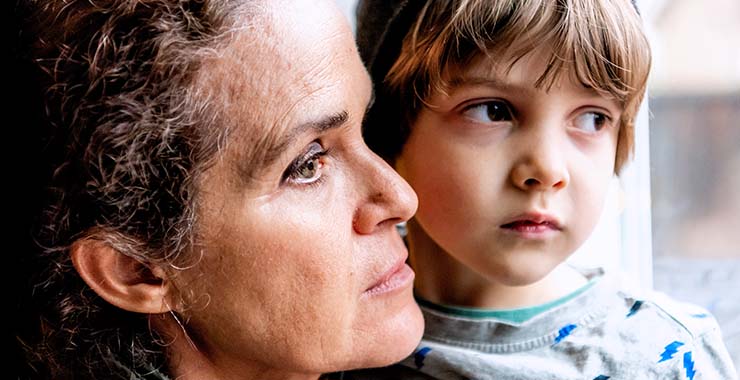A homeless woman recently gave birth on a downtown Salem sidewalk. It happened mid-morning Feb. 11 at the corner of Center and Liberty streets NE, near the entrance to Rite Aid.
While programs are in place to identify and support pregnant women living on the streets, this woman doesn’t appear to have been on any organization’s radar.
Could she have been new to the area? Was she laying low because she mistrusted the system? Or is it possible she didn’t know she was pregnant?
Whichever the case, she fell through the cracks.
The Statesman Journal is not reporting her name to protect her privacy, but we are reporting the story because she gave birth in such a public place where pedestrian and motor vehicle traffic is heavy.
The scene was a far cry from a quiet, sterile, warm hospital room, clinic or private home. She delivered on the same sidewalk where homeless people have been urinating and defecating in recent months.
It was misting and below 40 degrees.
By the time paramedics arrived, the newborn was wrapped in a blanket, and mom and baby were taken by ambulance to Salem Hospital. Sources report the baby later was taken into custody by the Oregon Department of Human Services.

Child welfare laws prevent DHS from confirming details of a specific case to protect the privacy of children involved, but spokesman Jake Sunderland said being unhoused is never the sole reason for a child being removed from a family and placed in foster care.
In 2019, about 19 percent of the agency’s cases had “housing instability” listed as a reason for removal. Most cases have multiple reasons, Sunderland said.
Coronavirus:Homeless advocates prepare for potential outbreak in Salem
While HIPAA privacy rules prevent Salem Health officials from discussing a specific case, they say the hospital’s experience shows women typically find housing during pregnancy, whether with a family member or at a local shelter.
“For this reason, extreme situations such as a pregnant woman living in a homeless camp at the time of delivery are rare,” Salem Health spokesman Elijah Penner said.
Homeless advocates and social service providers say when situations like this do happen, they’re rarely reported in the media.
“I really don’t think the number is huge,” said Debbie Hall, supervisor of the MOMs Program, which serves pregnant women at risk of substance abuse in Marion, Polk and Yamhill counties. “But one’s too many.”
Salem’s network of programs
Jimmy Jones, executive director of Mid-Willamette Valley Community Action Agency, agreed. He’s labeled what happened to this one woman “a complete system failure” and questioned the effectiveness of all provider efforts, including his.
“A birth on the streets in the middle of the highest-profile homeless camp perhaps in Salem’s recent history is an indictment on the community, on government, on public health, and the entire homeless service delivery system,” Jones said.
Jones said the street birth raises troubling questions:
How many times did service provider outreach efforts pass her by? How many times did she go to a hospital in the last year, only to be released without follow up? How many times has she interacted with DHS? How many times has she had contact with law enforcement? How was she not identified weeks ago as a client for the city’s Homeless Rental Assistance Program or other housing?
“For all the progress we’ve made the past two years, where is the coordination between homeless providers, the medical community and law enforcement?” Jones said. “We don’t know the answers to many of those questions, but I’m confident the answer is not zero.”
Support local journalism: Keep up with local history and what’s important to the community by becoming a Statesman Journal subscriber and following columnist Capi Lynn.
This woman wasn’t known by ARCHES, the housing and homeless division of Community Action Agency, a division that has 1,800 people logged in its coordinated entry system for services.
An ARCHES team has since met with her to do an assessment and is working to connect her with services and housing. An assessment includes demographic information and background in four areas: housing, risk factors, socialization skills and health (physical, mental and substance abuse).
There are local programs working to prevent something like this from happening, such as MOMs, a public health case management program for pregnant women who struggle with current or past substance abuse, and Family Building Blocks, a certified relief nursery committed to keeping children safe and families together.
Many MOMs clients are in residential treatment programs, although some are couch-surfing, stay at homeless shelters or live on the streets.
Family Building Blocks provides clients “home” visits wherever necessary, whether in the organization’s classrooms, at a grandmother’s house, at the library, or even in a tent. Of the nearly 800 families the nonprofit serves each year, about one-third have housing insecurity.
Organizations like these also partner with local pediatrician offices and OB-GYN clinics to bolster referrals.
Programs collaborate with courts
For the MOMs program, clients are sometimes referred by drug treatment centers, even DHS and courts.
Staff and volunteers also attend service events and frequent places where homeless people congregate, trying to identify women who are pregnant and encourage prenatal care and substance abuse treatment.
“We can’t find everyone,” said Patrice Altenhofen, executive director of Family Building Blocks. “As desperate as we search and as many connections as we try to make in the community, we know there are families we’re not finding, and that’s hard.”
MOMs and Family Building Blocks partner with Ten on Tuesdays, or TOT, a court-based program for expectant mothers struggling with addiction. Participants enroll with the hope to retain custody of their unborn child by abstaining from drugs the remainder of their pregnancy.
TOT is administered by Marion County Circuit Court, and participants check in every Tuesday for 10 minutes with Judge Heidi Strauch to discuss their sobriety and any need for additional supports.
“I’ve been in the courtroom for those check-ins,” Altenhofen said. The participants are “pretty vulnerable.”
Family Building Blocks provides free and voluntary services for women who are pregnant or have a child age 5 and younger. Eligibility is based on family stressors, including poverty, unemployment, homelessness, and drug and alcohol history, and prioritized based on need.
To participate in the MOMs Program, women must be on the Oregon Health Plan. If they aren’t, MOMs will help them get coverage. The program doesn’t turn anybody away.
Once enrolled, they receive peer mentor support and tools to help them stay clean and sober before and after pregnancy.
About 100 women were enrolled in 2019, and Hall’s best estimate for the number of babies born free of drugs was near 90 percent.
Seeking solutions:Salem’s homeless camping ban may have backfired. Now what?
“Our success rate is high,” she said.
But they do have to want to get help, and for some homeless women, that’s a complicated decision.
“The thing with that population is they’re really afraid to surface and afraid to go reach out for care because they know they’re going to be flagged and their baby’s going to be taken,” Hall said. “That’s a scary thing for women.”
Altenhofen said the message Family Building Blocks always tries to drive home is this: “We’re not here to take your child away. We’re here to help you keep your child.”
New overnight shelter is open
The Statesman Journal couldn’t determine if fear of losing her baby influenced the woman who gave birth downtown to lay low. We do not know how this woman wound up homeless or what barriers, if any, she faced to getting services.
One of the newest programs available to homeless women is SafeSleep United, an overnight shelter for unaccompanied women.
Homelessness:Is Salem’s crisis getting worse? Volunteers help in extended PIT count
It opened in mid-December last year and is a project of United Way and Inside Out Ministries. It can serve up to 19 women and has been full most nights.
Many are seeking respite from active sex trafficking, abuse and neglect.
SafeSleep operates on a first-come, first-served basis. Some nights, women are turned away. No pregnant women to the program’s knowledge have sought shelter so far.
Local officials know there are other homeless pregnant women in the area, just not how many. It is estimated that more than 450 women are living on the streets in Marion County at any given time.
“The public health conditions for these folks are severe,” Jones said. “The fact that we had a baby born downtown is just abhorrent. This is the kind of thing that we can expect if we don’t do better.”
Virginia Barreda of the Statesman Journal staff contributed to this report.
Capi Lynn is a veteran reporter and columnist for the Statesman Journal. Contact her at clynn@StatesmanJournal.com, 503-399-6710, or follow on Twitter @CapiLynn and Facebook @CapiLynnSJ.

